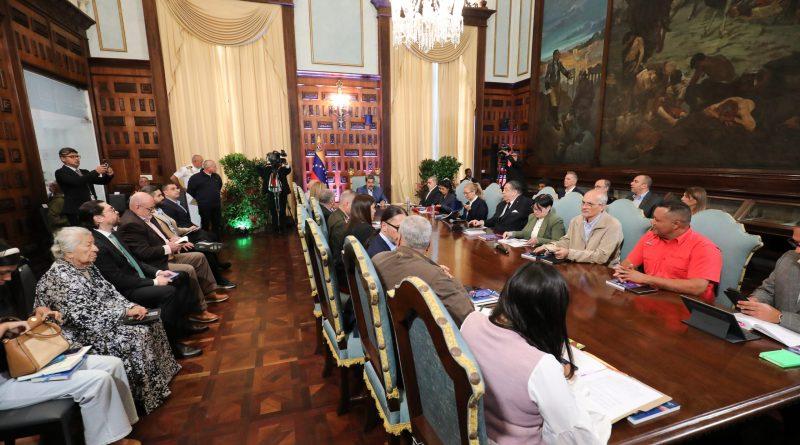Regarding the proposal for the Constitutional Reform project that the President of the Bolivarian Republic of Venezuela, Nicolás Maduro Moros, presented last Saturday, February 15, before the National Assembly (AN), today he led a meeting with the National Ample Commission, to discuss relevant points on the adaptations that will be made to the Magna Carta.
This meeting takes place from the Tríptico Hall of the Federal Legislative Palace, headquarters of the AN, where the head of State highlighted last Saturday that the 1999 Constitution plays a central role as the legal and foundational framework of the Bolivarian Republic of Venezuela, since the Magna Carta represents the aspiration of a democratic and participatory State.
In this sense, the changes that will be made to this ordinance, one of the main points for the review is to adapt it to the current realities of the country and the demands of the people of Venezuela.
In context, this reform is proposed as a means to perfect participatory and protagonist democracy, in addition to guaranteeing that communal and popular power has a defined place in the political system.
The Constitutional Reform Project contains almost 80 articles and the proposal addresses four (4) fundamental topics:
– Expansion and improvement of participatory, protagonist and direct democracy: this with the purpose of building a new democratic State system and incorporating the Communal, Social and the People’s Power.
– Construction of a new society: With this, specify the parameters, values and principles to be established for a more humane society from Bolivarianism.
– The new diversified economic model: To create a non-dependent and self-sufficient one; structural and vital.
– The legal, constitutional and political update of the entire framework of the Magna Carta of 1999.
The commission has a period of 90 days to offer the country a project, in order to advance towards a new, modern and inclusive, democratic and free society, where national unity and the integrity of the territory remain vital, as well as active social participation and national identity.
